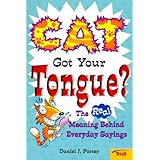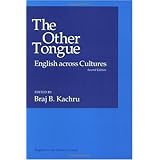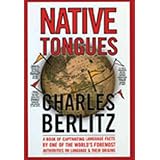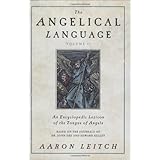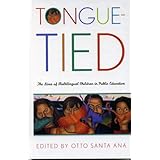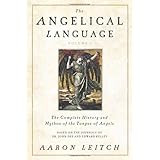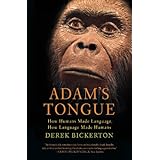
Average Reviews:

(More customer reviews)Are you looking to buy
Bastard Tongues: A Trail-Blazing Linguist Finds Clues to Our Common Humanity in the World's Lowliest Languages? Here is the right place to find the great deals. we can offer
discounts of up to 90% on
Bastard Tongues: A Trail-Blazing Linguist Finds Clues to Our Common Humanity in the World's Lowliest Languages. Check out the link below:
>> Click Here to See Compare Prices and Get the Best Offers
Bastard Tongues: A Trail-Blazing Linguist Finds Clues to Our Common Humanity in the World's Lowliest Languages ReviewThis is the most interesting intellectual biography I've read. Bickerton's motto above helped him to wander into linguistics when he was teaching English literature in Africa, and then become one of the first scientists to discover how creole languages work.
Bickerton investigates the creole languages invented by the descendents of West Africans enslaved by European powers - - the English, French, Portuguese, Spanish, and Dutch. He doesn't have the "Sitzfleisch" for library research, so he spends time in bars with the "unrighteous working class" in Columbia, Brazil, Barbados, Hawaii, Mauritius, and a dozen other places.
Bastard Tongues is a linguistic detective story. It takes Bickerton almost twenty years to find the answer to his mystery - - how creoles develop into full-fledged languages (just as complex as French or English) from the simpler contact languages (pidgins) that slaves used to communicate with their European overseers.
One of the most interesting of Bickerton's discoveries is how creoles exist on a continuum from "deeper" (almost incomprehensible to someone not a native speaker) to a level closer to the European language.
Bickerton goes into detail about how "the infernal machine" of a slave economy worked and shows how it was the nature of the slave economies in the "New World" that determined the evolution of their languages. Bickerton did as much for the field of history as linguistics. His analysis of the "expansion" and "establishment" phases of the American slave economies, and his investigation of the "maroons" - - escaped slaves, from the Spanish "cimarron," ("wild" or "runaway") is as interesting as the creole grammar.
His explanation of the TMA systems (tense, modality, aspect) in creoles will satisfy anybody who wants to get deep into interesting grammars without the academic jargon in some linguistics books. ("The difference between people and linguists is that people are interested in words and linguists are interested in grammar.")
Even if you're not overly interested in linguistics, but are interested in Hawaiin history, this book is fascinating. Sarah Roberts, one of Bickerton's students at the University of Hawaii, thought to look at court records rather than more literary sources for Hawaiin creole (or "Pidgin" with a capital P as it's called).
When Bickerton started in linguistics, there were three main theories about the origin of creoles: monogenesis (there was one ur-creole that influenced all the others), the superstrate theory (the creole mostly comes from the dominant language, say French or Portuguese), and the substrate theory (the creole mostly comes from the native language of the creole speakers (for instance, an indigenous West African language).
I never thought I'd say this in a review of a linguistics book, but SPOILER AHEAD.
Derek Bickerton showed that creole languages follow the same bioprogram that all human beings use to invent language, and that the reason creoles in the Pacific and South America resemble each other in basic grammar is because their users have the same mental equipment.
It looks like Bickerton's real intellectual leap wasn't so much in assuming creole-speaker-creators would use the same process as other kinds of language users, it was in NOTICING IN THE FIRST PLACE that the grammars of unrelated creoles were very much alike in very basic ways.
Bickerton's comparison of Saramaccan (a creole spoken in Surinam, with primarily English vocabulary) and Fa d'Ambu (the language of an island off West Central Africa with primarily Portuguese vocabulary) proves it.
Obviously, this owes something to Noam Chomsky's Universal Grammar (or Steven Pinker's "language instinct"), but Bickerton doesn't get involved in nature vs. nurture or biology vs. culture arguments. One thing I like about books by British and Australian linguists is that they don't feel the need to affirm or refute Chomsky's ideas. They take what works and leave what doesn't.
Bickerton also writes about Nicaraguan Sign Language, since deaf children create the same kind of full-bodied language that speaking children do, only using the mode of gesture instead of speech. Signed languages are just as complex as spoken ones. (Anyone who's read this far in this review will enjoy Talking Hands: What Sign Language Reveals About the Mind by Margalit Fox.)
More controversially, Bickerton proposes what linguists historically have called "The Forbidden Experiment," and which the National Science Foundation once approved for him, then cancelled. There are stories of rulers and "scientists" who supposedly isolated children without a language to see what would happen. (Fox's book Talking Hands goes into this subject as well, since that's the situation for deaf children who find themselves in a community of other deaf children, in which case they will create a basic pidgin in sign. When deaf children find themselves with others who have a basic sign language, they grammaticalize the pidgin and create a creole, a fully-formed signed language.)
I'm not as sure as Bickerton that the experiment he's proposing is a good idea, but like a lot in this book, it makes you think.
Bastard Tongues: A Trail-Blazing Linguist Finds Clues to Our Common Humanity in the World's Lowliest Languages OverviewWant to learn more information about
Bastard Tongues: A Trail-Blazing Linguist Finds Clues to Our Common Humanity in the World's Lowliest Languages?
>> Click Here to See All Customer Reviews & Ratings Now









